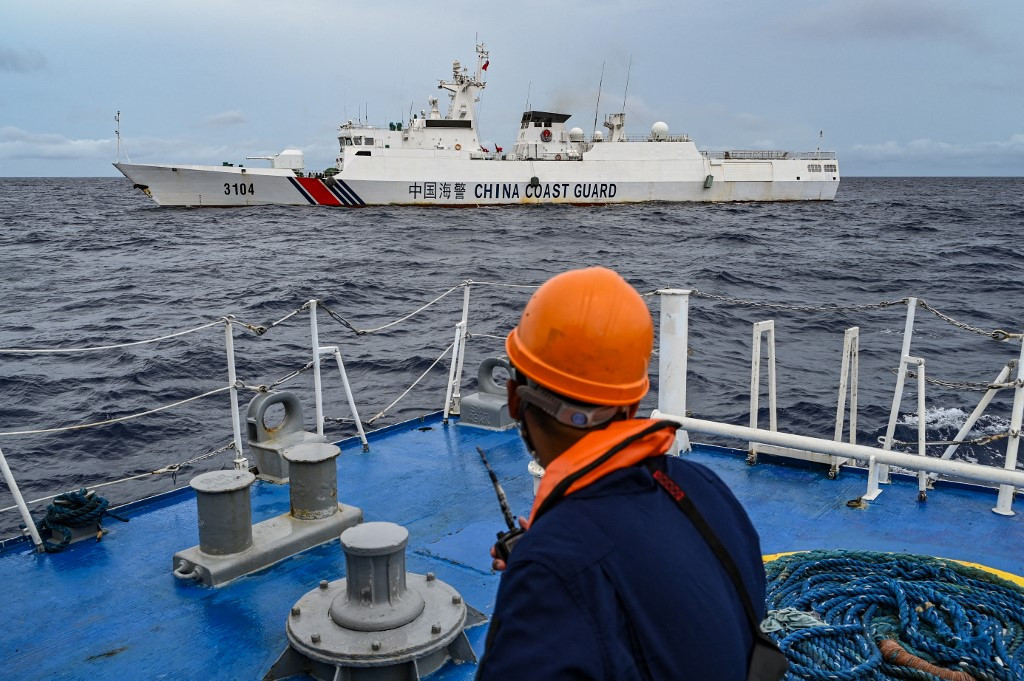Headline: Indonesia Reaffirms Stance on South China Sea Amid Ongoing Tensions
Indonesia’s Unwavering Position in the South China Sea
Indonesia has reiterated its steadfast position regarding the South China Sea, firmly rejecting territorial claims by China. Recent actions by the Indonesian government, including the expulsion of a Chinese coast guard vessel from the Natuna Sea, mark a significant moment in the ongoing territorial disputes in the region. This commitment underscores Indonesia’s resolve to protect its sovereignty and maintain maritime security amid rising tensions.
Who is Involved?
The key players in this ongoing saga include the Indonesian government, led by its Ministry of Foreign Affairs, and the People’s Republic of China. As tensions in the South China Sea continue to escalate, the stakes have never been higher for nations bordering this strategically significant waterway. Indonesia, while not directly claiming extensive parts of the sea, has contested certain actions by China that encroach upon its territorial waters, particularly around the Natuna Islands.
What Happened?
In a series of recent skirmishes, Indonesia has taken decisive action against incursions by the Chinese coast guard. Just last week, Indonesian naval forces expelled a Chinese vessel from Natuna waters, reinforcing Indonesia’s commitment to defending its maritime claims. This is not the first such incident; in recent years, Indonesia has repeatedly faced incursions from Chinese fishing and coast guard vessels, prompting a swift and resolute response from Jakarta.
When Did This Occur?
The most recent expulsion occurred during a heightened period of diplomatic tensions in October 2023. The Indonesian government has emphasized that its position remains unchanged despite external pressures, indicating a robust approach to maintaining its territorial integrity.
Where is This Taking Place?
The Natuna Sea, part of the South China Sea, serves as the backdrop for these maritime confrontations. Located in the southern portion of the South China Sea, the Natuna Islands are strategically important, not only for Indonesia but for international shipping routes as well. This area has become a focal point for regional geopolitics, attracting attention from various nations with vested interests in ongoing maritime routes and security.
Why is This Significant?
The significance of Indonesia’s actions lies in the broader implications for regional security, fishing rights, and international trade routes. With multiple countries, including Vietnam and Malaysia, asserting their claims in the South China Sea, Indonesia’s firm stance serves as an important warning against aggressive maritime behaviors. Experts believe that Indonesia’s determination may influence neighboring countries and act as a deterrent to further Chinese expansionism.
According to Indonesian Defense Minister Prabowo Subianto, "Our sovereignty is non-negotiable, and we will act decisively to protect our waters and our citizens." This statement reflects not only government sentiments but also the broader public backing for protective measures against foreign incursions.
How Will This Affect the Technology Industry and Public?
The ongoing tensions surrounding the South China Sea are poised to have significant repercussions for the technology industry, particularly in relation to shipping logistics and supply chain stability. The South China Sea is a crucial shipping lane that facilitates a significant percentage of global trade, including technology-related products. Any escalation in military confrontations may disrupt these shipping routes, leading to delays and increased costs.
Furthermore, advancements in maritime surveillance technology may evolve as nations like Indonesia seek to bolster their defensive capabilities. This provides opportunities for technology enthusiasts and professionals to explore innovative solutions for maritime security, such as AI-driven surveillance systems or autonomous vessels for patrolling territorial waters.
Contextual Background
Historically, the South China Sea has been a contentious area, with overlapping claims among several nations. China’s expansive territorial claims have been challenged by numerous countries, yet its assertive actions often escalate tensions. Indonesia, strategically positioned between these competing powers, finds itself in a unique position; while it has not claimed extensive maritime areas, it is committed to upholding international law and safeguarding its interests.
With the emergence of more countries speaking out against China’s expansive maritime claims, the role of Indonesia is more critical than ever. Observers note that Indonesia’s approach could inspire other Southeast Asian nations to adopt a firmer stance.
Engage with Us
As the situation unfolds in the South China Sea, it remains to be seen how these tensions will shape the geopolitical landscape. What are your thoughts on Indonesia’s actions and the future of the South China Sea? We encourage you to share your views in the comments below or connect with us on social media. Your insights on this evolving situation are invaluable as we navigate through the complexities of international relations and maritime security.
For more information on this topic, you might find these external sources informative: TechCrunch, Wired, and The Verge.
Stay tuned for further updates on this critical issue that intertwines international relations and technology’s role in maritime security.

![[재미있는 오늘의 운세] November 1, 2024 [재미있는 오늘의 운세] November 1, 2024](http://img.newspim.com/common/fortune/01.gif)